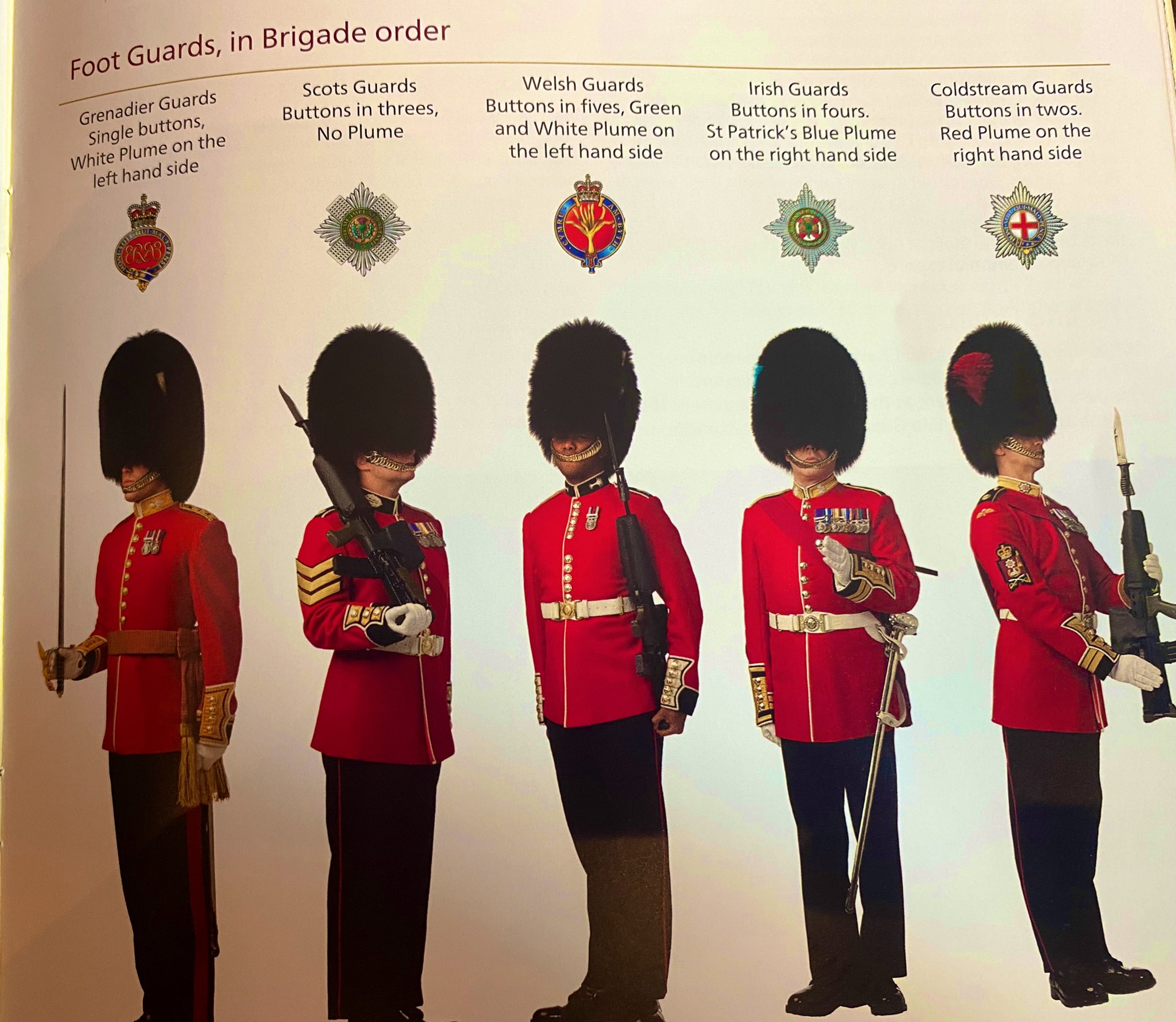The British Army's regiments of Foot guards are perhaps the most famous military units in the world. Instantly identifiable by their red tunics and bearskin hats the five regiments of guards are famous for both for their ceremonial roles in London and for their legendary battlefield successes and are easily one of the most recognisable and enduring symbols of the United Kingdom.
Following the First World War there were some proposals to form a sixth regiment of foot guards to be known as The Imperial Regiment of Foot Guards to be formed from men recruited from Canada, Australia, New Zealand, South Africa and other parts of the British Empire.
The regiment was to have worn a red, white and blue plume in their bearskins and have had the motto "For Crown and Empire".
The idea of creating a new Foot Guards regiment was quite current at the time with the Welsh Guards having been only recently formed in 1915 and the Irish Guards in 1900 from a core of Welsh and Irish personnel drawn from the existing Grenadier, Coldstream and Scots guards regiments.
Ultimately nothing became of the idea but what if the Imperial Regiment of Foot guards had become a reality and formed the British Army's sixth foot guards regiment?
Where might such a regiment have served?
Would the proposal of the regiments members being drawn from the Empire and presumably later the Commonwealth have actually been practical and what would the effect of these nations gaining independence have been?
Would the regiment still exist today?
Following the First World War there were some proposals to form a sixth regiment of foot guards to be known as The Imperial Regiment of Foot Guards to be formed from men recruited from Canada, Australia, New Zealand, South Africa and other parts of the British Empire.
The regiment was to have worn a red, white and blue plume in their bearskins and have had the motto "For Crown and Empire".
The idea of creating a new Foot Guards regiment was quite current at the time with the Welsh Guards having been only recently formed in 1915 and the Irish Guards in 1900 from a core of Welsh and Irish personnel drawn from the existing Grenadier, Coldstream and Scots guards regiments.
Ultimately nothing became of the idea but what if the Imperial Regiment of Foot guards had become a reality and formed the British Army's sixth foot guards regiment?
Where might such a regiment have served?
Would the proposal of the regiments members being drawn from the Empire and presumably later the Commonwealth have actually been practical and what would the effect of these nations gaining independence have been?
Would the regiment still exist today?
Last edited:
